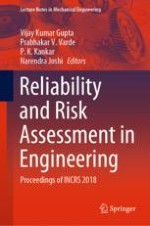2020 | OriginalPaper | Buchkapitel
Mutation Testing-Based Evaluation Framework for Evaluating Software Clone Detection Tools
verfasst von : Pratiksha Gautam, Hemraj Saini
Erschienen in: Reliability and Risk Assessment in Engineering
Verlag: Springer Singapore
Aktivieren Sie unsere intelligente Suche, um passende Fachinhalte oder Patente zu finden.
Wählen Sie Textabschnitte aus um mit Künstlicher Intelligenz passenden Patente zu finden. powered by
Markieren Sie Textabschnitte, um KI-gestützt weitere passende Inhalte zu finden. powered by
